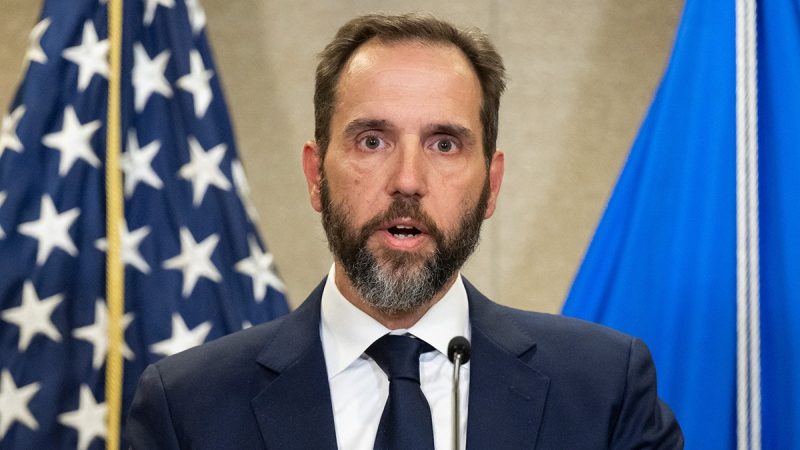

Here’s a quick recap of the crypto landscape for Wednesday (July 30) as of 9:00 p.m. UTC.
Get the latest insights on Bitcoin, Ethereum and altcoins, along with a round-up of key cryptocurrency market news.
Bitcoin and Ethereum price update
Bitcoin (BTC) was priced at US$16,964, down by 0.5 percent over the last 24 hours. Its highest valuation on Wednesday was US$118,644, while its lowest valuation was US$116,079.

Bitcoin price performance, July 30, 2025.
Chart via TradingView
Markets rallied briefly following the release of the White House’s crypto policy report, which called for greater SEC clarity and new legislation to regulate digital assets, but pulled back after the Federal Reserve left interest rates unchanged and warned of slowing economic growth.
Ethereum (ETH) was priced at US$3,764.26, down by 0.1 percent over the past 24 hours. Its lowest valuation on Wednesday was US$3,708.13, and its highest was US$3,820.17.
Altcoin price update
- Solana (SOL) was priced at US$176.09, down by 2.9 percent over 24 hours. Its lowest valuation on Wednesday was US$173.22, and its highest was US$179.83.
- XRP was trading for US$3.10, down by 0.6 percent in the past 24 hours. Its lowest valuation of the day was US$3.04, and its highest valuation was US$3.15.
- Sui (SUI) is trading at US$3.77, down 1.3 percent over the past 24 hours. Its lowest valuation of the day was US$3.66, and its highest was US$3.81.
- Cardano (ADA) was trading at US$0.7600, down by 2.3 percent over 24 hours. Its lowest valuation on Wednesday was US$0.7414, and its highest was US$0.7759.
Today’s crypto news to know
Ethereum marks a decade since launch
Ethereum marked its 10th anniversary on July 30 with growing corporate interest in Ether as a potential treasury reserve asset.
The Ethereum network launched in 2015 and has since maintained uninterrupted uptime, becoming the backbone of the decentralized finance (DeFi) movement. In the lead-up to the anniversary, Ether’s price approached US$4,000, driven in part by renewed institutional inflows and growing confidence in the asset’s long-term utility.
The Ethereum Foundation will commemorate the milestone by issuing celebratory NFTs and organizing more than 100 events globally.
A live broadcast featuring Vitalik Buterin, Joseph Lubin, and Tim Beiko will also be hosted to reflect on the network’s origins and future direction.
SEC greenlights in-kind ETP creations and redemptions
On Tuesday, July 29, the Securities and Exchange Commission (SEC) gave its approval for in-kind creations and redemptions by authorized participants for crypto asset exchange-traded products (ETPs).
“It’s a new day at the SEC, and a key priority of my chairmanship is developing a fit-for-purpose regulatory framework for crypto asset markets,” said Chairman Paul Atkins in the announcement. “Investors will benefit from these approvals, as they will make these products less costly and more efficient.
“Today’s approvals continue to build a rational regulatory framework for crypto, leading to a deeper and more dynamic market, which will benefit all American investors. This decision aligns with the standard practices for similar ETPs.”
Authorized institutions can now directly exchange crypto assets like Bitcoin or Ethereum for shares of a crypto ETP, and vice versa, making these products more efficient and potentially cheaper to manage than when only cash transactions were allowed.
Senator Lummis proposes bill to allow digital assets for mortgages
In a Tuesday notice, Wyoming Senator Cynthia Lummis introduced the 21st Century Mortgage Act, a law that could compel mortgage purchasers to consider digital assets in applications.
Lummis said her proposed bill would initiate congressional action following a June order from the US Federal Housing Finance Agency (FHFA) that mandated US mortgage purchasers Fannie Mae and Freddie Mac “consider cryptocurrency as an asset for single-family loans.”
“This legislation embraces an innovative path to wealth-building, keeping in mind the growing number of young Americans who possess digital assets,” said Lummis.
A similar crypto mortgage proposal, the American Homeowner Crypto Modernization Act, was introduced by Republican Representative Nancy Mace on July 14. Mace’s proposed bill would mandate that mortgage lenders incorporate the value of a borrower’s digital assets held in cryptocurrency brokerage accounts into their mortgage credit evaluations.
The bill is one of three that the US Senate may consider after a month-long recess, alongside a digital asset market structure bill and a bill aimed at barring the Federal Reserve from launching a central bank digital currency.
eToro expands 24/5 trading and tokenizes US stocks
Trading platform eToro has announced plans to expand its current 24/5 trading for 100 popular US stocks and ETFs, meaning customers can now trade these assets five days a week, almost around the clock, even outside regular market hours.
Co-founder and CEO Yoni Assia spoke with Yahoo Finance Executive Editor Brian Sozzi about the move on Tuesday (July 29).
“We’re expanding a lot of the trading universe and trading hours on the eToro platform. Announced today, more 24-hour stock trading on the platform, as well as near 24/5 trading on exchange CME traded futures, a new type of futures product,” Assia said.
“That’s very exciting for our users worldwide. And very excited also about revamping tokenization in eToro, launching those 100 stocks that trade 24/5 on the eToro platform as tokenized assets, gradually available to people with the eToro crypto wallet.”
The company also announced the launch of tokenized versions of these same US stocks as ERC20 tokens on the Ethereum blockchain.
This will eventually enable true 24/7 trading and transfers, and is part of eToro’s strategy to tokenize all assets on their platform and integrate them into the broader decentralized finance world. They’re also rolling out spot-quoted futures with CME Group, a simpler futures product, currently in Europe, with plans for wider availability.
Trump Working Group calls for aggressive federal action on crypto markets
A White House-appointed working group on digital asset markets has released a sweeping set of recommendations to overhaul US crypto policy, according to a preview.
The group, established under an executive order by Donald Trump in January, urged Congress to pass the Digital Asset Market Clarity Act and called on regulators to use existing powers to support immediate crypto market growth.
The report recommends that the Commodity Futures Trading Commission be granted broader oversight over spot markets for non-security tokens and that safe harbor provisions be used to accelerate product launches.
It also advises federal banking regulators to clarify permissible crypto-related bank activities and modernize capital rules to reflect token-based risks.
The Trump administration said the proposals would help ensure US leadership in the “blockchain revolution” and usher in a “Golden Age of Crypto.”
JPMorgan to let Chase customers buy Crypto via Coinbase
JPMorgan Chase (NYSE:JPM)has announced a major partnership with Coinbase that will allow Chase credit card users to purchase cryptocurrencies directly from the exchange.
The service is expected to roll out in fall 2025, with full account-linking functionality available by 2026. Customers will also be able to redeem Chase credit card reward points for USDC, a stablecoin pegged to the US dollar.
The move marks a notable shift in the firm’s stance toward crypto, going from a cautious observer to an active participant in retail-focused blockchain infrastructure.
With crypto’s total market cap recently crossing US$4 trillion, large banks are now racing to integrate digital asset capabilities into their core offerings.
Securities Disclosure: I, Giann Liguid, hold no direct investment interest in any company mentioned in this article.
Securities Disclosure: I, Meagen Seatter, hold no direct investment interest in any company mentioned in this article.























